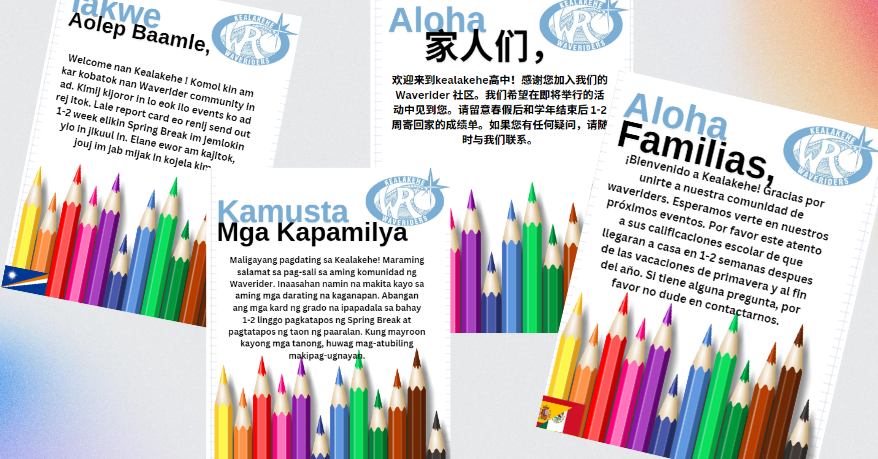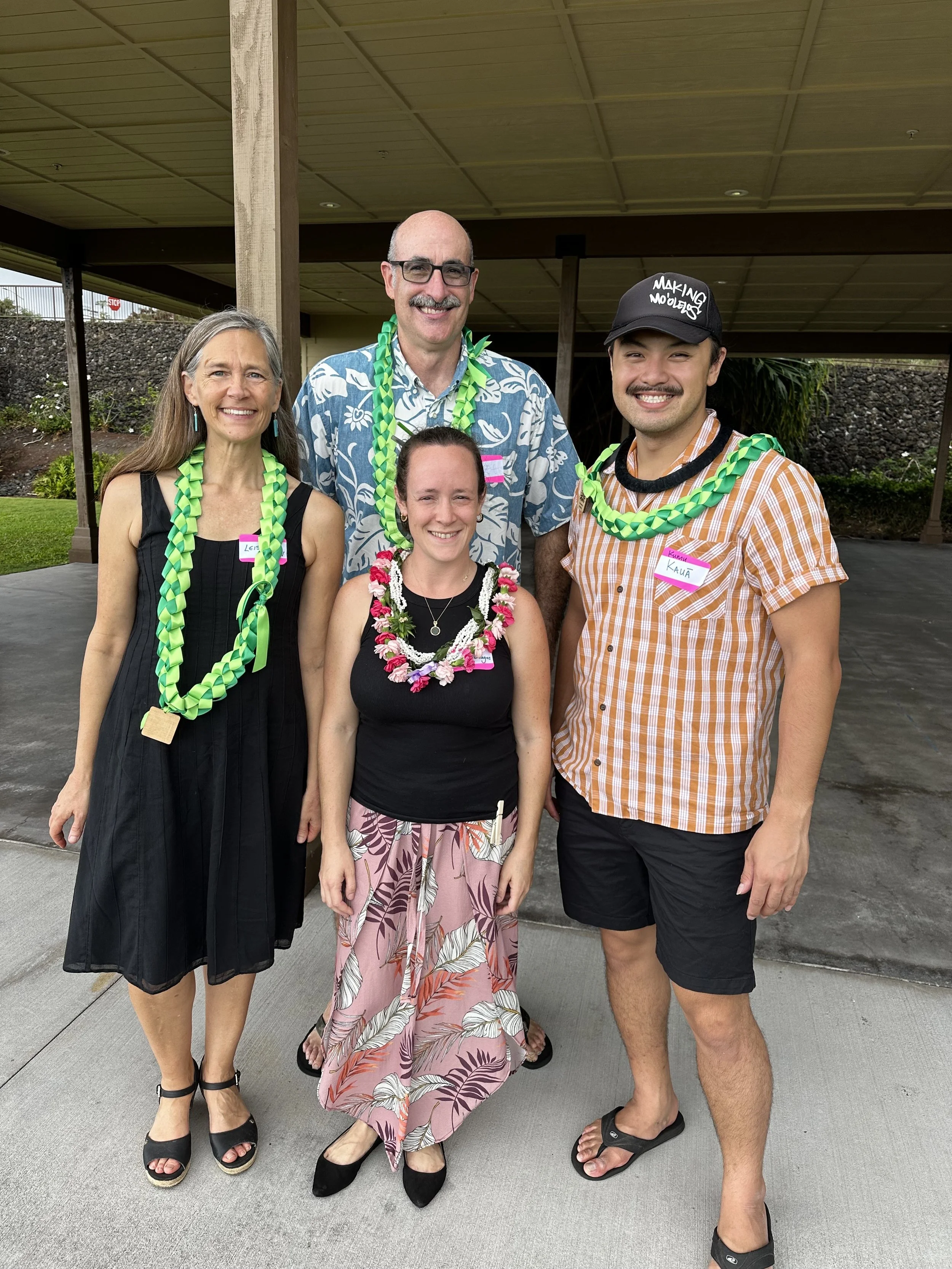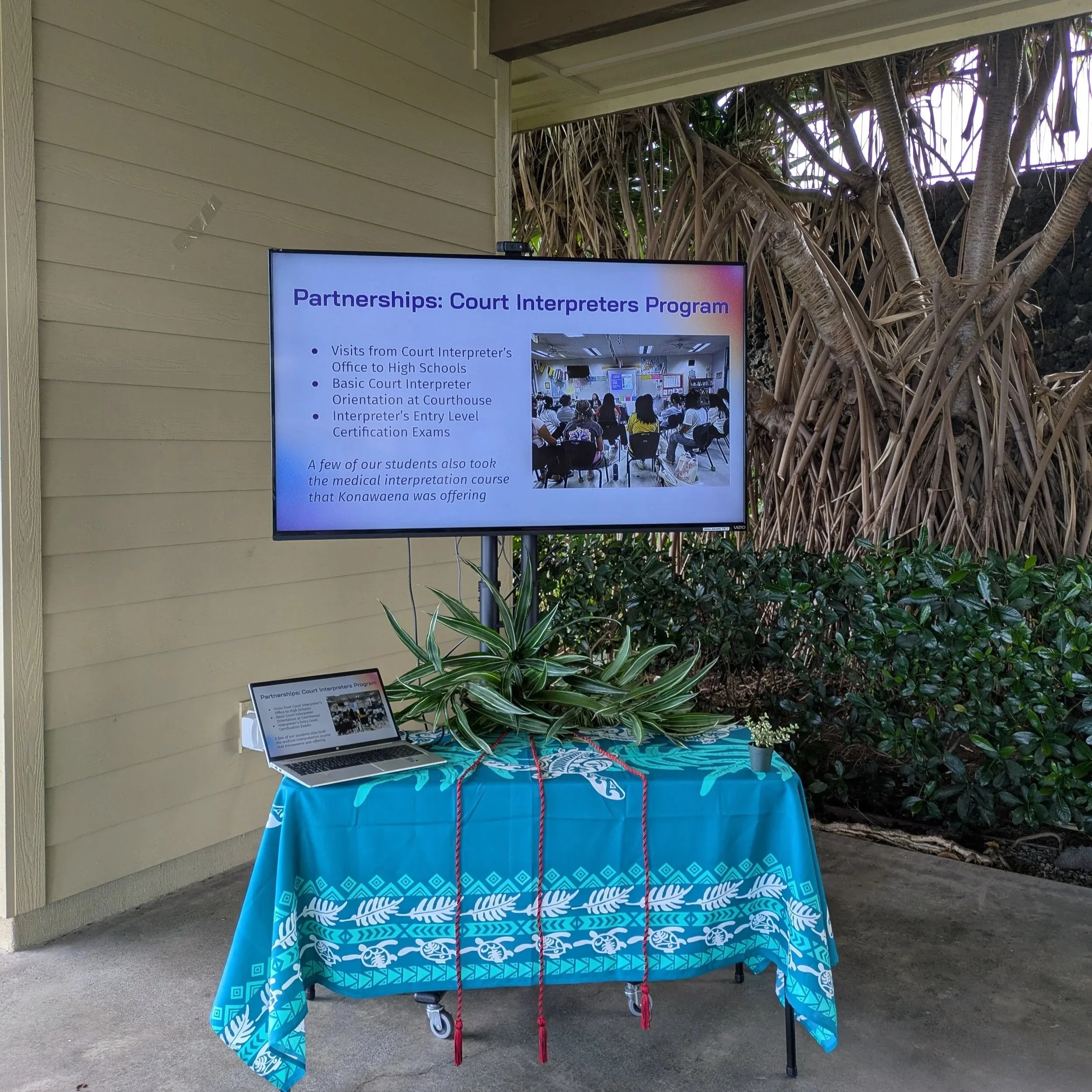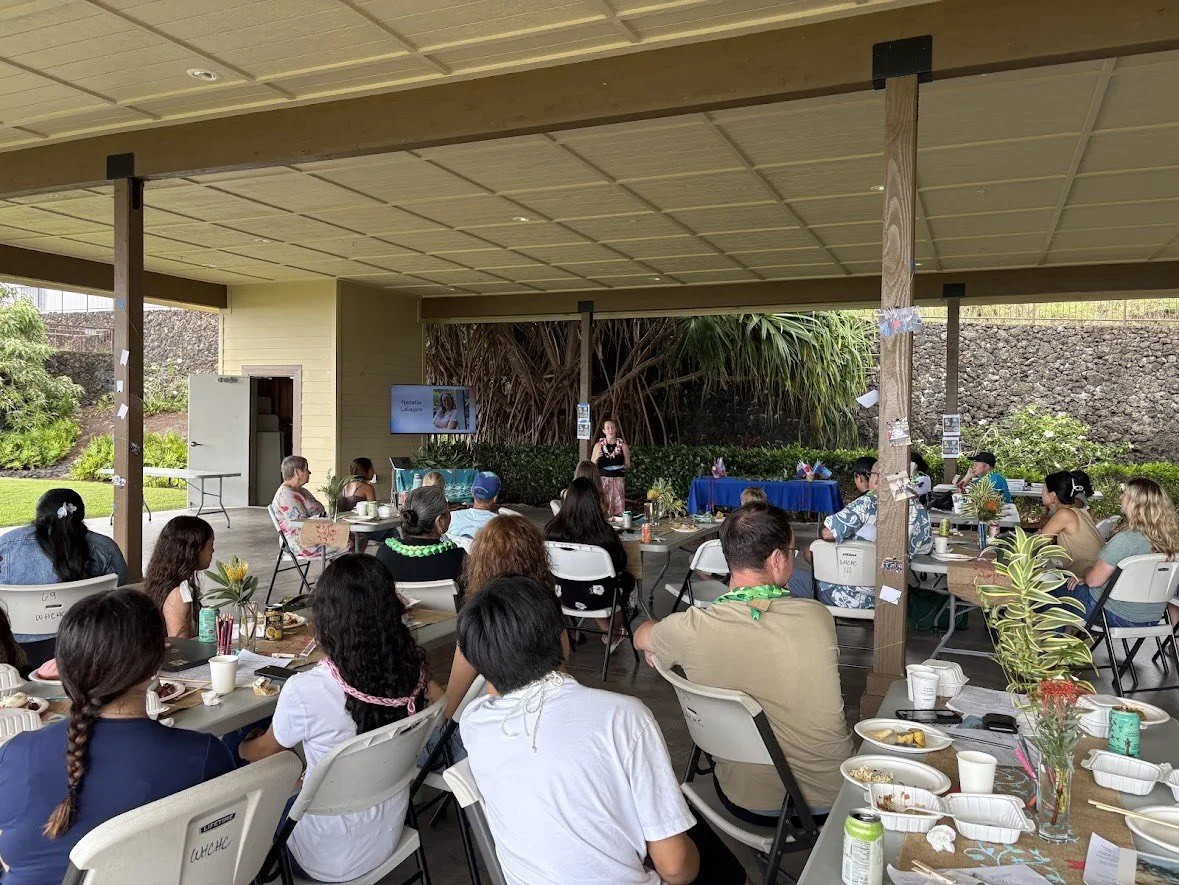Bright Spot: Transformative Translations #2
Originally published 10/10/2025. Updated 10/31/2025 with additional photos courtesy of Natalie Lalagos.
As Transformative Translations celebrates its 5th year, the program continues growing in its mission to uplift languages and empower their speakers. Since we last interviewed the director, Natalie Lalagos, in February of 2024 (check out the article here), the Transformative Translations team has added even more options for students, including expanding to another campus and adding another year of dual credit!
Some examples of translated flyers for Kealakehe, taken from the website. These flyers are informative but also welcoming to families, letting them know of important information while inviting future connection.
Schools & University
Leisy Wyman, Scott Saft (back), Natalie Lalagos (front), and Kauā Segundo
This year, ‘Ehunui became the newest addition to the program, which was already running successfully at Kealakehe High, Konawaena High, and Kaʻū High. This semester there are 45 active students across these four campuses, representing Marshallese, Samoan, Tagalog, Bisayan, Mandarin Chinese, Ilocano, Kosraean, Spanish, Pohnpeian, and Hawaiian!
With great help from their UH Hilo partners, Transformative Translations extended the dual credit component into two years, for a total of 4 semesters and 12 college credits. To help with the expanded program, a new instructor, Kauā Segundo, has joined professors Scott Saft and Leisy Wyman. Students still enjoy an annual visit to UH Hilo to meet their instructors, experience campus life, and speak to current college students.
Career Pathways for Participants
Now that the program completed 25 internships, they have alumni to be proud of! For example, a former program participant is rejoining Transformative Translations as an assistant to help manage the program’s growing scope. At the same time, she is studying for the court interpreter certification exam.
The certificate is a good example of a lesser-known local career pathway that career explorers can benefit from learning about, even if they do not choose to pursue that option. Transformative Translations doesn’t just advocate for awareness of interpretive services and related career pathways, but also helps interested students prepare for and sit the exam. The certification qualifies students for a well-compensated local job that utilizes their interpretive skills to make an impact in the community: a win-win for everybody.
Information about the Court Interpreters partnership was shared during the 5th-year celebration.
Inside Transformative Translations or out in the world, it is important that multilingual (and those who might someday be!) people see that their skills are valuable and helpful. Few young people get much opportunity to utilize their skills in academic or work settings until they reach high school and can join this program.
Newest Internship
Inspired by a project that participants enjoyed last year, Natalie is adding a new type of internship for students: creating podcast episodes in their own languages. In addition to giving interns paid work experience, she hopes that the content they create will help with the program’s goal of “elevating all the languages of our community.” Interns are free to create podcasts on topics of their choosing, working in groups or solo, along with help from experienced mentors. The internship takes place outside of school hours, so interns are expected to mostly work on projects independently. They will also join regular virtual checkins and collaborate with their team. We really like this approach of providing support to publicly-beneficial student-led projects, with the flexibility to accommodate students’ preferences as they develop independent work skills.
Additionally, the internship application, the program itself, and the adult mentors will help students with generalizable skills such as preparing resumes, doing job interviews, and working remotely.
Program participants, staff, and supporters at the celebratory potluck.
Get Involved
While we’re excited by the new podcast program and its podcast-savvy mentors, Natalie is always on the lookout for more mentors from a variety of backgrounds. Mentors help students not just with translations, but with personal development, job skills, and connections.
You can also donate to the program’s fiscal sponsor 501(c)(3) organization, Friends of the Future. Additional funds help the program expand, meet student needs, offer scholarships and stipends, and take on new facets like this year’s podcasting effort.
Of course, free community translation services remain a key component of the program. We’ve submitted to them a few times, and can confidently recommend the service quality! Here are some more examples of their work.
You can submit text, audio, and video requests at their website:
Program links
Website: https://sites.google.com/view/transformativetranslations/home
Instagram (new!): @transformative_translations






